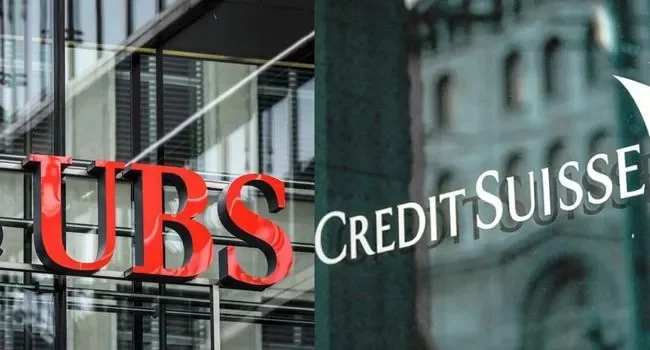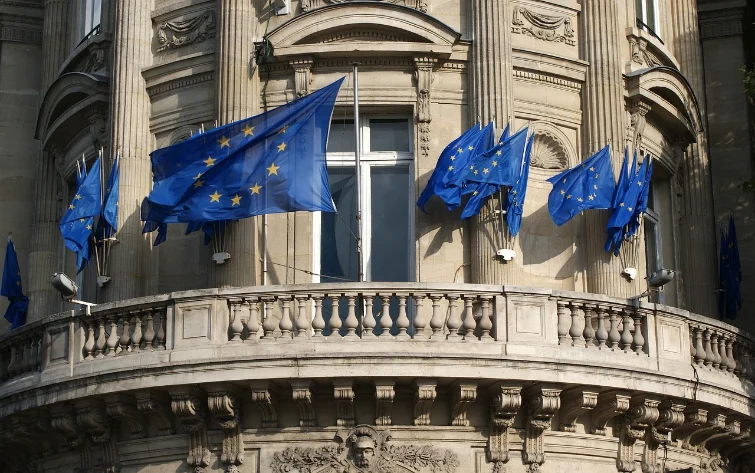The US Department of Justice is intensifying its investigation into Credit Suisse Group and UBS Group AG regarding suspicions of not following rules properly, which might have allowed Russian clients to avoid sanctions.
What started as a series of requests for information sent to various banks earlier this year has now turned into a comprehensive inquiry, with a primary focus on Credit Suisse. Insiders who preferred to remain anonymous due to the ongoing investigation revealed that the DOJ has informed US-based lawyers representing UBS about potential sanctions-related problems associated with Credit Suisse after UBS acquired the smaller bank in June. The Department of Justice is also considering the possibility of compliance issues at UBS.
The investigation is still in its early stages, and it’s uncertain whether it will lead to any charges or settlements, as per insiders. However, this situation comes at a tricky time for UBS, the bank based in Zurich.
They are currently integrating thousands of employees from Credit Suisse into their operations. In addition to taking on Credit Suisse’s business, which expanded UBS’s wealth management operations by nearly a third to more than $4 trillion, UBS has also inherited the legal problems that contributed to Credit Suisse’s collapse in March.
The Department of Justice has requested information about how these banks managed accounts for clients who were subject to sanctions over the past several years. However, they have not yet asked to conduct interviews with the banks’ executives or staff members, according to one of the sources.
This investigation encompasses the sanctions imposed after Russia’s invasion of Ukraine in 2022 and the earlier rounds of sanctions that were put in place following Russia’s annexation of Crimea in 2014, as another source noted. Over the past decade, the US has blacklisted more than a thousand wealthy Russians.
As of 1:26 p.m. in Zurich, UBS shares had fallen by 3.4%. Initially, they had dropped by as much as 7.9%, marking the sharpest decline since March.
A UBS spokesperson declined to provide any comments on the matter, and the Department of Justice also chose not to comment.
Within the Department of Justice, there is a sense of frustration regarding this situation. Some officials saw the takeover of Credit Suisse as an opportunity to advance the ongoing investigation into the bank’s activities.
In this case, investigators have directly approached UBS with requests for information, rather than going through the official diplomatic channels, which can be slower. Typically, any requests for assistance from foreign prosecutors must be channeled through the Swiss Federal Office of Justice.
However, this case seems to be an exception to that rule, as the FOJ has stated that it has not received any requests related to Credit Suisse, UBS, and the issue of Russian sanctions.
Behind closed doors, US officials have expressed frustration over what they perceive as Switzerland not taking sufficient action to enforce sanctions against Russia and combat money laundering. They believe that these actions have allowed Russia to maintain its economy despite the restrictions imposed by the US and its allies in response to the Ukraine invasion.
The US is critical of Switzerland’s refusal to participate in a multinational effort to track down illegal Russian assets and its previous decision to unfreeze certain assets in a prominent corruption case tied to the Kremlin.
Before the Ukraine invasion, Credit Suisse was known for its services to wealthy Russians, managing over $60 billion of their assets at its peak. By February 2022, when the invasion occurred, this figure had decreased to $33 billion. Despite this decrease, it was still 50% more than what UBS managed, even though UBS had a larger wealth management business. UBS retained the top banker for Credit Suisse’s Russian business, Babak Dastmaltschi, while parting ways with other senior executives during the takeover.
Legal Woes
US investigations into breaking sanctions have previously resulted in hefty fines. For example, in 2014, BNP Paribas SA pleaded guilty to violating US sanctions related to Sudan and had to pay a massive $8.97 billion.
This ongoing investigation is just the latest one involving Credit Suisse in the United States. The Justice Department is currently looking into whether the bank continued to assist US clients in hiding their assets from authorities. This scrutiny comes eight years after the bank paid a $2.6 billion settlement for tax evasion.
Back in March, the Senate Finance Committee revealed “major violations” of that previous deal by Credit Suisse. On the other hand, UBS has stated that it is actively cooperating with investigators.
The investigation into sanctions comes at a time when Washington is paying increased attention to Switzerland’s alleged role in facilitating the movement of illicit funds out of Russia.
Senator Ben Cardin expressed concern during a hearing in July, stating, “We consistently see a pattern here in which Switzerland’s banking arrangements have facilitated the corrupt practices of people that have robbed their country of their wealth.” He emphasized the need to ensure that sanctions are not being circumvented, particularly by a country like Switzerland.
It’s worth noting that Swiss banks held over $200 billion of Russian assets, as estimated by an industry group in March 2022. However, by the end of the last year, Switzerland reported freezing only about 7.5 billion Swiss francs ($8.4 billion) worth of Russian assets.





